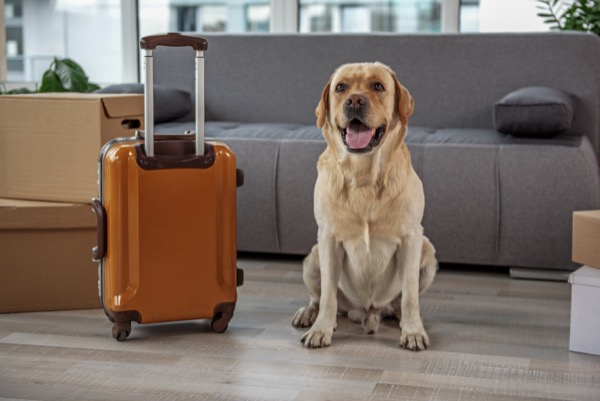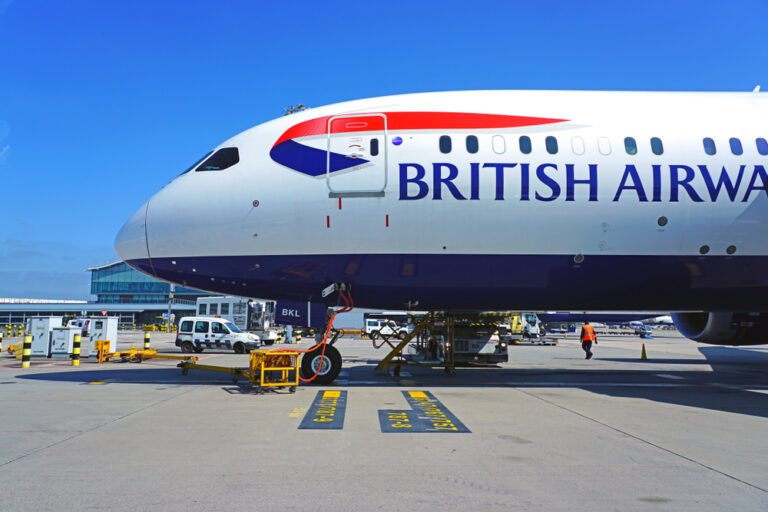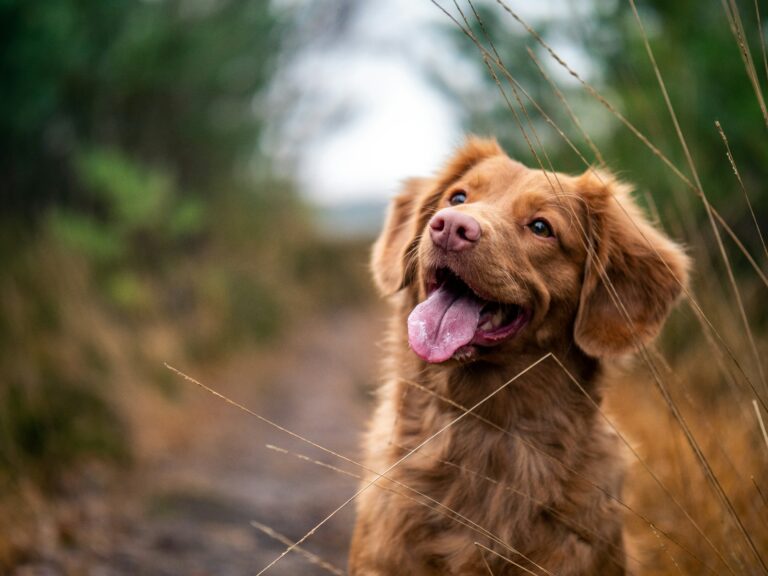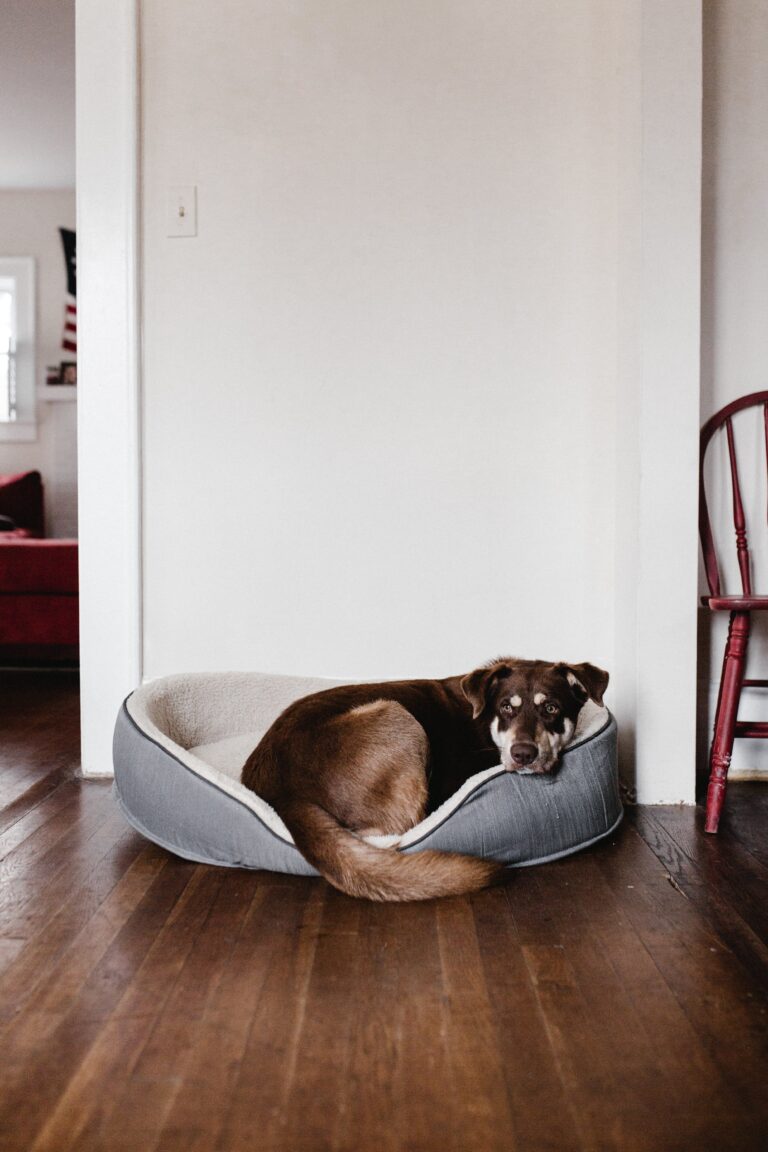Though most pets adjust really fast to new environments, there are certain behaviors that can be expected after shipping your pet. Behavioral changes like house soiling, signs of hunger at the wrong times, not wanting to be left alone (showing signs of separation anxiety), reacting to new sounds, etc. are all behaviors that can be expected from cats and dogs relocating. The way your pet reacts to their new environment can vary widely, depending on your pet’s susceptibility to changes, the way you react to the changes yourself and whether or not you had time to prepare your pet for the changes. Here is what to expect after shipping your dog.
 Feeling Unwell
Feeling Unwell
Some pets might feel unwell after a plane ride due to the altitude during the flight. Malaise, sore muscles, dehydration, headache and fatigue are all potential symptoms you might observe in your dog and yourself. But these tend to resolve quite quickly. You can help prevent some of these symptoms by providing light exercise before and after the dog travels and plenty of water after their arrival.
Soiling During Travel
Soiling during travel can happen when our pets become anxious, the only thing to prevent this is to limit food intake before your cat or dog travels, you can also help your pet by allowing them to become comfortable with their travel crate weeks or even months before the pet moves. House soiling in a new environment is something that is quite common, especially if you don’t take the time to “re potty train”. Just because your dog or cat was perfectly trained in their old home doesn’t mean it will be as easy to figure the right place to “go potty” in a new home. So with a little time spent showing your cat where the litter box will now live, or showing your dog where their new doggy door is and which part of the yard they can use, you can avoid a lot of house soiling and the anxiety that comes with that. Just pretend it’s a new kitten or puppy and start from the beginning of house training.
Anxiety
Many pets can be anxious during the first few days in a new environment. They don’t recognize their surroundings and that can be tough for some cats and dogs. They will usually follow you around your new home more than usual, or they might seem more anxious when you leave and come back. If you can set up the furniture you had before in a similar manner, that sometimes helps. You should also provide the cat’s spot or dog’s bed as soon as you can so there is instantly something familiar. Many people will also add a worn piece of clothing to the pet’s bed, this can help the pet recognize their spot. It is also important that you go about your business as soon as possible. If you are providing the dog or cat with a lot of extra attention than what they usually get from you, this can put them in high alert. The more “normal” you behave, the faster your pet will adapt. If you start seeing more severe signs of distress then your pet might benefit from a pet trainer or behaviorist to help your pet deal with the changes.
Sleeping Patterns
Your dog and cat’s sleeping patterns can be affected by travel too, especially when you move across time zones. Did you know our dogs and cats can also suffer from pet jet lag? This is normal and with a few adjustments, you can help reduce your pet’s symptoms. With gradual shifts for sleep and mealtimes, as well as exercise, keeping them well hydrated and allowing plenty of time in the sun.
Upset Tummies
Since upset tummies are quite common in traveling pets, we suggest that when you feed your dog after travel you feed them a light meal. If you have done some gradual meal shifts to accommodate for a new time zone, then try to stay as close to that new time as possible. If you didn’t have time before your move to shift your pet’s meal times to a new time then start them off slowly. You might need to stay up a bit later or wake up a bit earlier at first but a gradual meal change will usually help with both behavioral and physical symptoms of pet jet lag.
Odds are, it has been a long day of travel and the dog is hungry, but feeding them a large meal will in many cases upset their stomach. Many dogs can be overwhelmed during travel, either due to excitement or nervousness and both of these can cause an upset stomach. Whether it is diarrhea or vomiting, a lighter meal will lessen the symptoms in your dog or cat. Make sure you provide water at all times after travel. Make a note if your pet is not drinking, as dehydration can be a concern after air travel. If you feel your dog is drinking more than usual, you might also need to regulate intake by serving them only a small bowl of water at a time (too much water too fast will tend to make dogs throw up).
Consult with a Veterinarian
Of course, if any of the behavioral or physical symptoms are persistent after your pet travels then you will need to see a veterinarian just to check that there isn’t something else going on. But most pets adjust very well to their new environments and in most cases, much quicker than many humans. We hope you and your pet will be very happy in your new home. Safe travels!
Contact Us
Contact one of our specialists or get an estimate to start your journey!
Visit us for more: www.airpetsinternational.com
Call us for more information: 866-738-7447
Email us: info@airpetsintl.com



